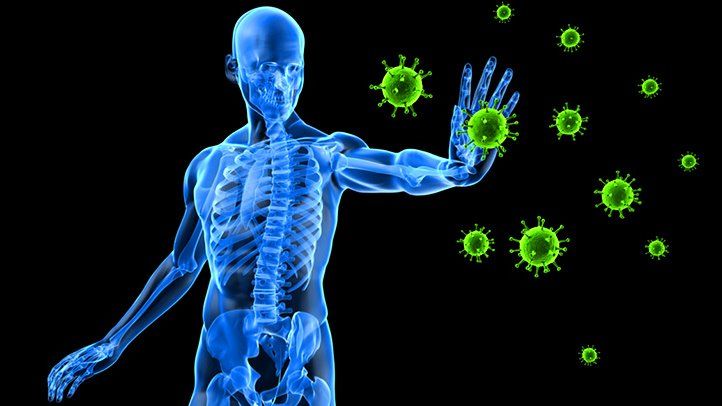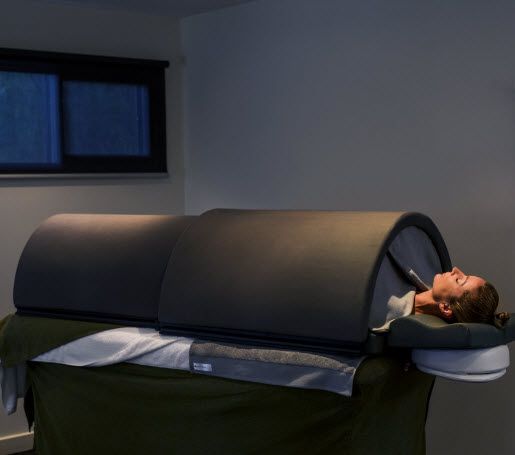ANuYou Wellness and Slimming Centre
- Unit 5 Ground Floor Left, Cambridge Office Park, 5 Bauhinia Street, Highveld Technopark, Centurion
- +27 72 565 7202

Tips to help and keep your immune system strong and healthy :
- Regular ozone therapy as it gives us more oxygen en boost immune system
- Electro therapy to help antibodies to protect our immune system
- FAR Infrared therapy
- Anti-oxidants to protect your cells like Vitamin C
- Live a healthy balanced lifestyle
- Drink enough clean water – 2,5 liter per day
- Keep a good hygiene regime
Unlike other systems in the body, in many ways the immune system doesn’t appear like a system at all. Its parts, which range from the largest organ in the body to some of the smallest cells, are spread throughout the body. Often, the parts that make up the immune system don’t even interact or work in concert as they perform their function. Yet the function of the immune system is one of the most important in the body. Without it, we might not live for more than a day, possibly two. That’s because at any given instant, a war is taking place inside the body, a war that will determine our health—good or bad.
It involves a number of invaders, viruses, bacteria, fungi, and parasitic worms that, left unchecked, could kill us. But our body puts up a constant defense, a defense that begins with a wall that can be likened to the defensive walls of a great fortress.
The Skin
The skin is the body’s largest organ, covering eighteen square feet of surface area on a typical adult human. It is an amazing organ able to withstand the outside environment, the cold, heat, toxins, bacteria, and viral invaders, without causing us much trouble.
We each have entirely new skin every twenty-seven days. That is how long it takes for the skin’s outer layer, the epidermis, to be replaced. Every minute, each second, we are losing cells from the epidermis. When we bathe, when our clothes rub against our skin, cells are rubbed off. Ready to replace them are new cells that begin their growth in the skin’s lowest layer, the subcutaneous tissue of the skin, and then they push themselves through the fatty, middle segment of the skin, the dermis, until they reach the outer layer.
Our skin is made up of much more than simply skin cells. This is what makes it an organ, rather than just a collection of cells. In a quarter inch square of skin, there are more than 100 sweat glands, twelve feet of nerves, ten hair follicles, fifteen oil glands, and three feet of capillaries.
Combined, all of the parts of the skin help it perform its many functions. It is able to keep itself moist by producing oil. It can regulate body temperature by releasing water for evaporation. It can sense pain or heat or cold, allowing our body to react according to the stimulus.
It also allows the skin to act as our first line of defense against invaders. Constantly, our skin comes into contact with bacteria and viruses looking for a way to enter our body. The skin acts as a potent defensive shield. Acting both as a physical and chemical barrier, the skin stops the invaders from entering. Unless the skin is breached physically, such as when we get cut, bacteria cannot enter.
The Mucous Membranes
We must have some openings in our defensive outer layer—our skin—in order to survive. We need to breathe, so we have a nose and a mouth. We use the sense of hearing to help us communicate. We survive obstacles and dangers by using our ability to see, yet each of these openings offer invading viruses and bacteria a way inside our body. To help stop them, we have mucous membranes, which assist in the early defeat of invading pathogens at the openings of the eyes, nose, sinuses, throat, windpipe, and bronchial tubes. Here these membranes produce mucous, which both traps and washes away bacteria and viruses, stopping them from going further into our body.
When we have a cold and our nose is runny, the mucous membranes are producing extra mucous in an effort to defeat the virus that has given us a cold. When we have a sore throat, it is because the battle against a virus is being waged in the mucus produced in our throat. Still, sometimes harmful bacteria, viruses, or parasites do make it past our outer defenses, past the skin and mucous membranes.
The Lymphocytes
The war inside of us is waged by cells in our blood. Like other blood cells, they are produced in our bone marrow, and they are directed by hormones produced in some of our glands. But nevertheless, lymphocytes, commonly known as white blood cells, are the front-line soldiers that defeat illness day in and day out.
They come in a number of types. For example, one type of lymphocyte, called phagocytes, specializes in devouring unwanted debris. They act no matter what the substance, so long as it has been identified as not being part of us. For this reason, their response is termed nonspecific, which means they will react to any invader.
Antibodies roam the body, looking for a specific invader. The antibodies seek out invaders that have structures that complement their own; when they find one, they attach themselves to the invader, and the battle is on.
When an antibody attaches itself to a virus or bacteria, a chemical signal triggers a response from the B cell that produced it, prompting the B cell to produce more antibodies and also to begin dividing, creating two, then four, then eight and more new B cells.
But it is the antibody that these new cells produce that really fights the battle. It does this in a couple of ways. For example, enzymes and toxins released by bacteria are what cause damage to surrounding tissue. When an antibody attaches itself to a bacterium, the bacterium is no longer able to release those toxins. Similarly, antibodies can stop the damage done by viruses, which cause their damage by connecting themselves to healthy cells within our body. After an antibody has attached itself to a virus, the virus is no longer able to invade healthy tissue.
The response of the B cells and the antibody that they produce has a lasting effect. Although B cells stop dividing and producing antibodies after a virus or bacterial invasion is stopped, the antibody can remain in the bloodstream for three to twelve months. This means that if we come into contact with a similar illness, our immune response is ready to act, which is why we rarely get one cold and another right after it.
B cells are aided in their defensive efforts by another group of lymphocytes called T cells. These cells come in three types. The first, “killer” T cells directly attack and consume bacteria and viruses. The second type, “helper” T cells, act as the facilitator of our defense by producing a chemical that calls more killer T cells into action.
The “suppressor” T cells act like a referee, producing a chemical that stops the fight after victory against the pathogen has been achieved.
Together, all the parts of our immune system—the skin, mucous membranes, and lymphocytes—are a potent weapon against illness and infection. When they function properly, the only way we know they are at work, keeping us healthy, is when we have sniffles from a cold or a sore throat from the flu. It’s a small price to pay for all the work that the immune system does for us.
Infrared exposure supports the immune system:

“Fact: Far infrared saunas provide a gentle, side-effect-free, effective mechanism for detoxification. Their waves penetrate deep into the human body, elevating the body’s surface temperature, activating circulation, sweating and excretion of toxins from the lymph and blood through the skin. The heat also increases your heart rate and encourages deeper breathing, which boosts the drainage process even further.” ¹
Far Infrared (FIR) exposure provides for a natural way to enhance the human immune system.
Through the heating of the core body temperature and through the penetration of infrared energy, FIR boosts your immune system, thereby increasing the count of white blood cells and killer T-cells. T-cells kill cancer cells and other cells that are infected with viruses along with cells that are otherwise damaged and need to be eradicated from the body.
“Far Infrared Sauna Therapy (F.I.R.S.T.) helps to boost the immune system in many ways. First off, as far infrared heat penetrates deep into our body and increases the body’s temperature we sweat out 5-6 times more toxins, fat, and impurities than normal sweat.
Every system in our body performs better when it functions in a detoxified state, especially our immune system.
Contact Anuyou today for more information, book your free Body Assessment today!


